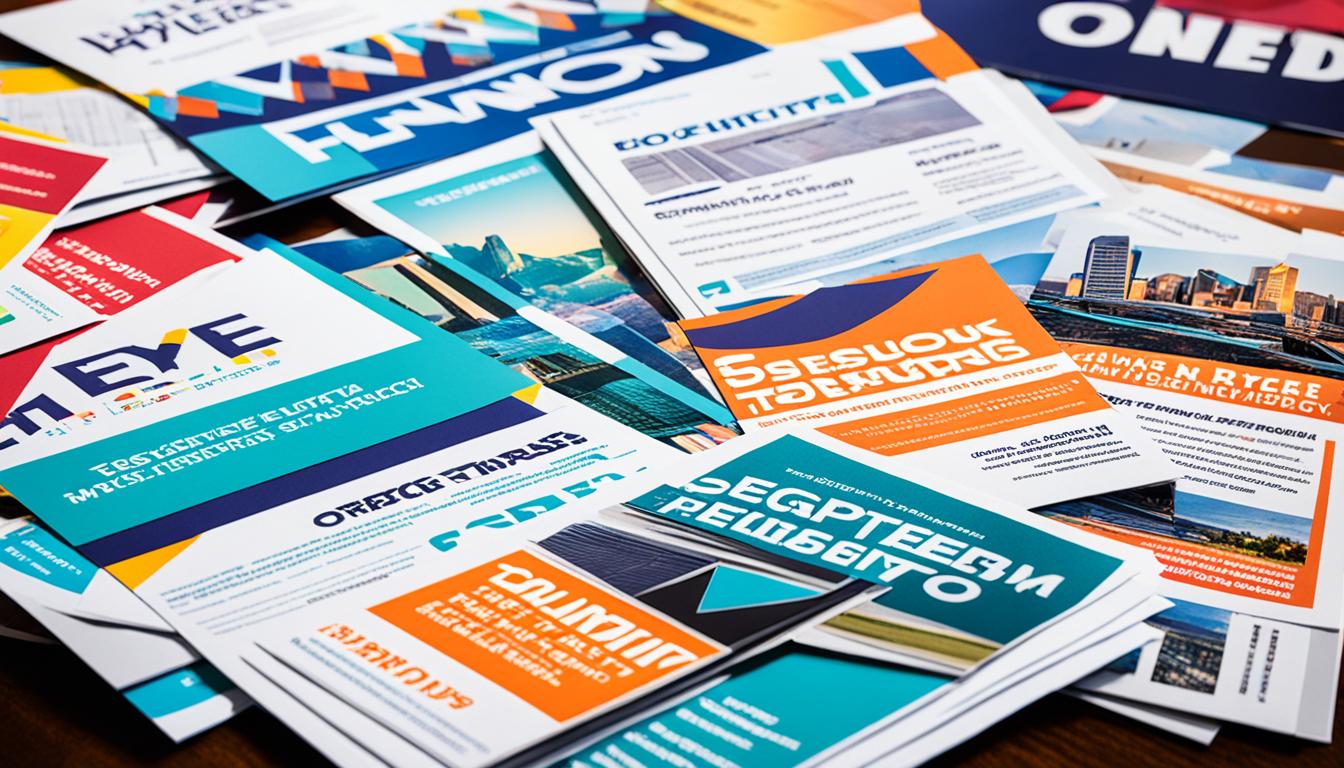Referral marketing is when happy customers tell others about a business. It’s like word-of-mouth but better because it rewards the people who spread the word. This creates a group of fans who naturally promote your brand.
This piece dives into referral marketing. We’ll cover what it is, why it matters, and how it functions. Plus, we’ll explore strategies for referral marketing and share stories of programs that really worked.
What is Referral Marketing?
Referral marketing is a way to promote products or services. It uses the power of people’s suggestions. But, it’s not just any word-of-mouth marketing. Referral marketing uses specific plans and rewards. This makes customers want to tell others about a company’s offers. It’s all about getting people involved. This helps a business reach more customers through the people they trust.
This type of marketing focuses on people sharing good things with friends and family. It’s different from normal ads. When people talk about something they like, others listen. So, when customers share their good experiences, everyone wins. The person sharing gets a reward. The company gets more customers and trust.
For referral marketing to work, companies give incentives. These rewards are for both the person who shares and the new customer. Rewards can be things like discounts or free items. This encourages people to spread the word about what they like.
Referral marketing uses the internet, social media, and face-to-face talks. To make it work well, companies create things easy to share. This makes their brand well-known. Personal recommendations are powerful. They make people more likely to try something new.
In short, referral marketing is about using customers’ connections to grow a business. It rewards people for sharing their good experiences. This way, companies reach more people. They also build stronger relationships with their current customers.
Benefits of Referral Marketing:
- Cost-effective advertising method
- Utilizes the trust and influence of personal recommendations
- Increases brand exposure and customer acquisition
- Enhances customer loyalty and retention
- Improves conversion rates and customer lifetime value
Why is Referral Marketing Important?
Referral marketing is key for businesses because it’s affordable and boosts customer growth, sales, and trust.
It’s a cheap way to market. Referral marketing gives a good return on what you invest. Businesses use their current customers to attract new ones by giving rewards for referrals. This way, they create a network of people who trust each other, making it more likely to gain loyal customers.
Studies show referral marketing really helps. Customers who come through referrals are more valuable over time. They often spend more than other customers. Plus, they’re more likely to buy products based on a trusted recommendation.
Trust is another big benefit. People trust their friends and family more than ads or online reviews. This trust helps businesses beat doubt and gain credibility.
To wrap it up, referral marketing is cheap and effective. It helps bring in new customers, increases how much they buy, and uses trust to boost sales. By tapping into word-of-mouth, companies can grow stronger and keep expanding.
How Does Referral Marketing Work?
Referral marketing uses customer referrals to promote products or services. Businesses encourage happy customers to spread the word. This approach helps boost customer engagement and business growth.
Customer Referrals: Customer referrals are key in referral marketing. When customers share their positive experiences, it influences others. This creates a bigger customer base built on trust.
Incentives and Rewards: Businesses motivate customers by offering rewards for referrals. Rewards can be discounts, free items, or loyalty points. This creates a situation where both the customer and the friend benefit.
Referral Program: A referral program makes it easy for customers to make referrals. It sets rules, tracks referrals, and gives out rewards. Each program is tailored to meet the company’s goals.
Referral Software: Referral software helps companies manage their referral programs. It automates tracking and managing referrals. This makes rewarding customers more efficient.
Channels for Referrals: Customers can make referrals in many ways. They use e-commerce, social media, emails, and direct interactions. By using different channels, businesses can reach more potential customers.
Benefits of Referral Marketing
Referral marketing offers big benefits for business growth:
- Increased Customer Trust: Referrals from known people build trust in new customers.
- Cost-Effective Customer Acquisition: It cuts down advertising costs and brings in customers cheaply.
- Enhanced Customer Lifetime Value: Customers coming through referrals are often more loyal and valuable.
Referral marketing is an effective way to grow a business. It uses happy customers’ influence and rewards them. By having referral programs and software, companies can use customer referrals to their advantage.
Referral Marketing Strategies
Effective referral marketing strategies can boost your business success. Using different tactics helps build a strong referral program. It engages customers and brings in leads.
Create Shareable Content
Creating engaging content is a key strategy. Make blog posts and videos that your audience loves. High-quality content shared by customers increases your brand’s visibility. It acts as a recommendation, attracting new customers.
Provide Excellent Customer Service
Top-notch customer service is crucial in referrals. Ensuring customers are happy increases their chances of recommending you. Excellent service builds trust and strengthens bonds with customers. They are more likely to refer others.
Set Clear Goals
Setting clear goals for your referral program is vital. Define what you aim to achieve, like more referrals or increased revenue from them. This helps track your program’s success. Then, you can fine-tune your efforts for better results.
Implement a Referral Partner Program
Working with referral partners can broaden your marketing impact. Partnering with those who have a similar audience or goals extends your reach. A referral partner program boosts referrals and opens new business opportunities.
Automation
Automating your referral marketing makes your program more efficient. Use software for easy tracking and managing of referrals. Automation ensures a smooth process for customers and your team. It saves time and enhances your marketing impact.
These strategies can power up your marketing by leveraging word-of-mouth. They help build relationships and grow your business.
Types of Referral Programs
Referral programs are key in making the most of customer recommendations and growing a brand. They come in three main kinds: direct referrals, reputation-based referrals, and incentivized referrals.
Direct Referrals
Direct referrals happen when happy customers tell others about a brand on their own. If someone loves a product or service, they’re likely to tell their friends and family. This kind of referral shows that a brand is doing something right and that people trust it.
Reputation-Based Referrals
When a brand is well-regarded, reputation-based referrals happen. These are based on the brand’s good standing and the high-quality products or services it delivers. Customers feel good about suggesting such a brand to others. This type of referral is strong because it’s based on real customer happiness.
Incentivized Referrals
Incentivized referrals give rewards to both the person who makes the referral and the new customer. By offering something in return, like discounts or special perks, companies motivate customers to spread the word. Everyone wins in this situation. The person who made the referral gets a reward, and the new customer enjoys the brand and its benefits.
Choosing the right referral program depends on who the customers are, the type of business, and what the company wants to achieve. Using different types of referral programs can help a brand connect with more people and grow through word-of-mouth.
| Type of Referral Program | Description |
|---|---|
| Direct Referrals | Natural customer recommendations without external incentives. |
| Reputation-Based Referrals | Recommendations based on a brand’s strong reputation and credibility. |
| Incentivized Referrals | Referrals that offer rewards or incentives to both the referrer and the referred-in friend. |
Examples of Successful Referral Programs
Referral programs are a big hit across different sectors. They offer rewards to customers who bring in friends and family. Let’s look at some top examples of these programs:
Koodo Mobile
Koodo Mobile, a telecom company in Canada, has a cool referral program. If you’re already a customer, you can get bill credits for each friend you refer. This helps Koodo grow its customer base and get more people talking about their brand.
Tesla
Tesla, known for its electric cars, has a unique referral program. Customers get perks like discounts on new cars or special Tesla merchandise for bringing in new buyers. It’s a way to reward loyal customers and bring in more fans to their community.
Airbnb
Airbnb, a top choice for finding places to stay, offers a referral program too. Both you and the friend you refer get credits. It’s a smart move to keep users coming back and expanding Airbnb’s reach.
Harry’s
Harry’s, a men’s grooming brand, has an interesting offer. Refer friends, and you could get free shaving supplies for a whole year. It’s a great way to keep customers coming back and spread the word about Harry’s.
Evernote
Evernote, popular for note-taking and organizing, rewards users with premium features when they refer friends. It helps boost the number of users and gets them more engaged with the app.
T-Mobile
T-Mobile, a big name in the US mobile market, runs a “Refer-a-Friend” program. People get rewards, like bill credits and discounts on gadgets, for every friend that joins.
Revolut
Revolut, a fintech company, gives cash rewards to customers who refer friends. It’s a win-win. Revolut gains more users, and the community grows stronger.
Robinhood
Robinhood makes trading stocks cost-free and offers a referral scheme where both you and your referred friend get a free stock. This helps bring in new users and shares the benefits of Robinhood with more people.
Gousto
Gousto, a company that delivers meal kits, has a referral program too. Both the person referring and the referred friend get credits for their meal kit subscriptions. It’s a great incentive to spread the word about Gousto.
SMARTY
SMARTY, in the UK, offers cheaper phone plans through its referral program. It’s a strategy to attract more customers and keep the existing ones happy and engaged.
IG
IG, an online platform for trading and investments, rewards referrals with cash bonuses. This encourages customers to tell friends about IG, helping to increase their clientele.
Google runs “Google Local Guides,” a program encouraging users to share tips and photos on Google Maps. Contributors earn points and get special perks, enhancing Google Maps with valuable local insights.
Vitality
Vitality, a provider of health and life insurance, has a referral program offering cash incentives. Both the referrer and the new customer benefit, helping Vitality attract new clients and support healthy living.
Kaizen
Kaizen, an SEO agency, offers discounts to customers who bring in new clients. This referral program helps grow Kaizen’s business and solidifies its industry standing.
Kwiff
Kwiff, for mobile sports betting, rewards referrals with “supercharged” bets. It’s a clever way to get users to bring in friends and make betting more thrilling.
Dropbox
Dropbox, offering cloud storage, has a program where referrals earn you and your friend extra space for free. It’s an excellent strategy for gaining and keeping customers.
Google Pixel 8
The Google Pixel 8 phone has a referral program too. Customers can get credits towards their purchase by referring friends to buy a Pixel 8. This helps boost sales and spread the word about Google’s flagship smartphone.
Uber
Uber, a leading ride service, offers ride credits for referrals. This helps Uber grow its user base and remain competitive in the ride-sharing market.
| Company | Referral Program |
|---|---|
| Koodo Mobile | Bill credits for referrals |
| Tesla | Discounts for successful referrals |
| Airbnb | Credits for qualifying stays |
| Harry’s | Free shaving for a year for referrals |
| Evernote | Premium features for successful referrals |
| T-Mobile | Bill credits and device discounts |
| Revolut | Cash rewards for referrals |
| Robinhood | Free stocks for successful referrals |
| Gousto | Credit towards meal kit subscriptions |
| SMARTY | Discounted phone plans for referrals |
| IG | Cash bonuses for successful referrals |
| Benefits and perks for contributions | |
| Vitality | Cash incentives for insurance referrals |
| Kaizen | Discounts on services for referrals |
| Kwiff | “Supercharged” bets for successful referrals |
| Dropbox | Additional storage space for referrals |
| Google Pixel 8 | Credits towards device purchase |
| Uber | Ride credits for referrals |
Conclusion
Referral marketing helps businesses gain new customers, boost sales, and build customer loyalty. It uses word-of-mouth and rewards to grow the business. By getting current customers to talk about their products, companies reach more people.
This method is cost-effective. Instead of paying a lot for ads, companies use happy customers to share their experiences. This saves money and attracts new customers who trust the brand because a friend recommended it.
It also increases customer loyalty. When customers bring in new people, they feel valued by the business. This makes the bond with the brand stronger, keeping customers happy and loyal for a long time.
In the end, referral marketing is a strong way for businesses to grow steadily. By using smart strategies and tools, companies create a group of customers who love and promote their brand. This approach leads to more customers initially and continuous growth through a devoted customer base.





